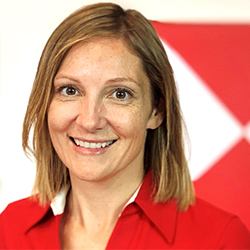Businesses across the world face a battle for talent as they look to unlock growth opportunities, according to new research from HSBC.
New insights from HSBC’s latest Navigator research on The Future of Work show that competition for talent means companies are having to diversify how they are attracting and retaining staff, as they seek to achieve growth ambitions over the next 12 months.
The research polled more than 2,100 business leaders from 10 global markets and found that companies expect their workforce to increase by an average of 13% in the next 12 months. Two in five (42%) businesses plan to increase headcount by 20% or more.
Seven in 10 (70%) companies are planning to increase headcount, while just 12% intend to cut their workforce, the report says.
Investing in staff
Three quarters (77%) of businesses see a ‘strong’ relationship between investment in workforce and profitability, as they target almost 20% revenue growth on average over the next 12 months.
To take advantage of the growth potential, 69% of businesses are already investing in their workforce in some way, through hiring, upskilling or training, with a further 28% planning to do so in future.
As competition intensifies, the research shows leaders are reacting by placing stronger emphasis on wellbeing and work-life balance factors to attract staff.
Despite salary and benefits still being perceived as the top factor in moving jobs by 46% of business leaders, flexible working policies (39%) and an emphasis on physical, mental and financial wellbeing (36%) are set to become just as important for employees.
Reimagining the workplace
The research shows:
• Remote working is here to stay – 67% see remote/hybrid working as crucial to enabling the enhancement of future growth; just 5% of businesses believe they will not see any form of remote working in future.
• Flexibility seen as big boost for wellbeing – 39% of business leaders believe offering staff a flexible working arrangement, where employees can choose where they work, is a key driver for attracting and retaining staff. The potential positive impacts on employee wellbeing was noted as the top benefit of a remote or hybrid approach.
• As a result, the most popular future workplace option is a ‘fully flexible’ approach to remote working, where employees can freely determine whether they go into the office or are onsite – 34% of businesses plan to implement this policy.
 Channel Islands view
Channel Islands view
Aline Ayotte (pictured), Head of Commercial Banking at HSBC Channel Islands and Isle of Man, commented: “Business leaders are enhancing the ways in which they are attracting and retaining people, including non-financial factors such as wellbeing, flexible working policies and training and development.
“Businesses in the Channel Islands and Isle of Man should pay attention to these trends. As IFCs competing for skills in a global marketplace, they need to respond accordingly if they are to attract and retain talent and meet their growth objectives.
"The pandemic has shifted work patterns and the expectation of what employees across the globe want from their jobs. So, not only are businesses adapting their working arrangements and enhancing support for staff as part of their bid to attract top talent, but also to incentivise their staff not to look elsewhere.
“With the pandemic putting corporate purpose on centre stage, we expect businesses to increase investment in their staff as they look to enhance and build their company cultures and workplace environments.”
• To view the report click here